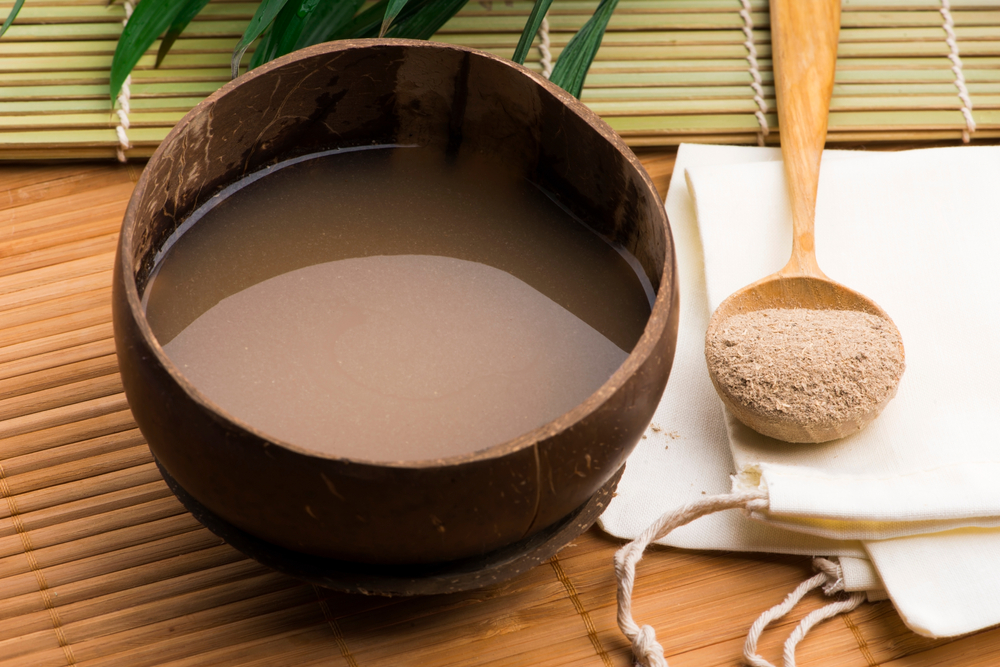Last Updated:
May 16th, 2025
Kava Addiction | Symptoms, Effects and Causes
Some people may not have heard too much about Kava, especially as it was banned in the UK in 2003. This ban made it illegal to import, sell or possess Kava for human consumption. However, Kava is still found in some places as a herbal supplement or in other forms not intended for human consumption. The risks of Kava are not yet fully understood, but we do know that it can cause a great deal of harm to your liver and can cause Kava addiction. If you are using Kava, it is very important to understand the symptoms, causes and consequences of Kava addiction to reduce your risk of harm.

What is Kava?
Kava comes from a plant called Piper Methysticum, which is native to the South Pacific islands. There, it is usually consumed as a drink made from the ground root of the plant. This drink creates calming and euphoric effects, a bit like a natural tranquilliser. This drink is central to social and ceremonial traditions in Pacific cultures, a bit like how alcohol is used in Western societies.
Kava influences how your brain’s nerve cells communicate. Its compounds, called kavalactones, mainly boost the levels of a chemical called GABA, which helps calm your brain and makes you feel less stressed and anxious.
In the West, Kava is sold in various forms, including as a raw root, powdered form, capsules and liquid extract. The raw root can be ground into a powder and used to brew traditional kava tea, and it is perhaps the most common form available outside of the Pacific Islands. Capsules and tinctures offer a more convenient way to consume Kava, especially for those using it for therapeutic purposes like anxiety relief.
Kava is not legally available in the UK due to regulatory restrictions as it was banned in 2003 over concerns about its potential to cause liver damage. Despite this, it can still be found online and through other illegal means, and it is still abused for its sedative and pleasurable effects.
What is a Kava addiction?
Addiction involves the compulsive use of a substance despite facing harmful consequences. While Kava isn’t thought to be inherently chemically addictive like heroin or cocaine, it can still lead to physical and psychological dependence in some users. This is especially true for individuals who consume it heavily and regularly, particularly as a way to get high. Some people may use Kava as a substitute for alcohol, while others mix Kave with alcohol and other drugs to ramp up effects.
Whatever the reason or method, frequent Kava use can lead to a building tolerance where you need to drink more tea or take stronger doses to feel its effects. This can then create a physical dependency where you experience mild withdrawal symptoms and feel a psychological pull to continue using Kava often as a means to manage stress or anxiety.
Kava addiction is when these two dependencies, physical and psychological, come together. In the long-term, addiction can have serious consequences, but even short-term side effects of Kava include nausea, headaches, vomiting and stomach pains.
Spotting the warning signs of a Kava addiction
Kava is still a relatively understudied substance and its reputation as a health supplement can play down the potential risk of addiction. However, spotting these Kava addiction signs and symptoms early can prevent an escalating issue:
- Needing to consume increasingly larger amounts of Kava to feel the same level of relaxation or anxiety relief.
- Experiencing Kava withdrawal symptoms like unusual fatigue, intense dreams, mild headaches or feelings of irritability when not consuming Kava.
- Choosing to stay in and consume Kava rather than socialising, going to work or taking part in school.
- Continuing to use Kava even after experiencing or being warned about potential liver damage and other risks.
- Spending substantial amounts of time and energy obtaining Kava such as by visiting multiple health stores or spending excessive time online to purchase Kava.
- Buying Kava illegally because you feel like you have to have it (the only way to buy Kava in the UK)
Recognise these signs? Even if you are not entirely sure, the safest bet is always to seek professional advice and help for Kava addiction.
What causes a Kava addiction?
Kava effects on the brain are what initially make it a potentially habit-forming substance. However, you may be able to Kava without ever becoming dependent while somebody else may develop an addiction in just a short time. That is because addiction risks are different for everybody with contributing factors including:
The mental and physical dangers of a Kava addiction
Understanding the real and serious risks associated with Kava is crucial for anyone considering its use. Here are some of the mental and physical dangers of Kava addiction:
- Liver damage: Regular Kava use can lead to fatal liver failure and cirrhosis, often signalled by jaundice, fatigue and dark urine. This was the main reason why Kava was banned in the UK. It also competes with liver enzymes needed to metabolise other medications, leading to increased side effects and potential liver toxicity.
- Kidney injury: The toxic substances that Kava may break down into can greatly harm your kidney functions, risking long-term and potentially fatal kidney damage.
- Respiratory issues: Kava’s sedative effects can depress the respiratory system, leading to shortness of breath and other breathing difficulties.
- Neurological effects: Chronic users may experience hallucinations as a result of Kava’s psychoactive properties affecting the brain.
- Skin conditions: Frequent Kava use could cause Dermopathy, a skin condition that causes changes in skin appearance.
- Gastrointestinal irritation: Kava can irritate the stomach lining, causing discomfort and potentially leading to more severe gastrointestinal issues.
- Increased accident risk: The tranquilising effects of Kava can lead to accidents and injuries, especially when operating vehicles or machinery.

How to help someone with a Kava addiction
To effectively combat addiction, Kava detox should first be conducted under strict medical supervision. This method prevents the severe discomfort and potential dangers of quitting Kava at home on your own.
After that, the focus shifts from physical detoxification to mental and emotional recovery in legal high rehab. This is all about reinforcing recovery through intensive therapy sessions. These sessions are designed to provide insights and coping mechanisms that address the deeper issues fueling Kava addiction, with options available in both private centres and public NHS services.
Where can I get help for Kava addiction?
Addiction Helper is your ally in finding the right path to overcome Kava addiction. We deeply understand the varied recovery landscapes and are ready to help you choose the right treatment option for you. Reach out to us today, and we can help you begin your recovery journey today.
Our compassionate team are ready and available to take your call, and guide you towards lasting the lasting addiction recovery you deserve.
Frequently Asked Questions
(Click here to see works cited)
- UK Rehab. “Legal-High Addiction | Causes, Symptoms and Diagnosis.” UK Rehab, https://www.uk-rehab.com/legal-high-addiction/. Accessed 6 February 2025.
- GOV.UK. “Legal Highs.” GOV.UK, https://assets.publishing.service.gov.uk/media/5a79849d40f0b63d72fc679a/legal-highs-postcard.pdf. Accessed 6 February 2025.
- Richardson, W N, and L Henderson. “The safety of kava: a regulatory perspective.” British journal of clinical pharmacology vol. 64,4 (2007): 418-20. doi:10.1111/j.1365-2125.2007.02933.x
Bian, Tengfei et al. “Kava as a Clinical Nutrient: Promises and Challenges.” Nutrients vol. 12,10 3044. 5 Oct. 2020, doi:10.3390/nu12103044

